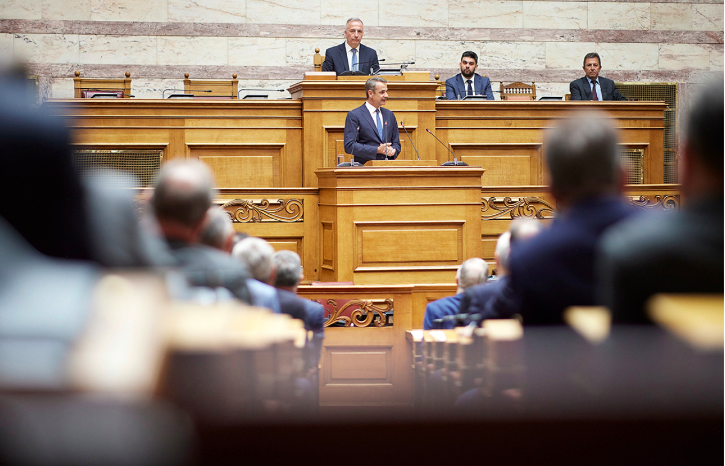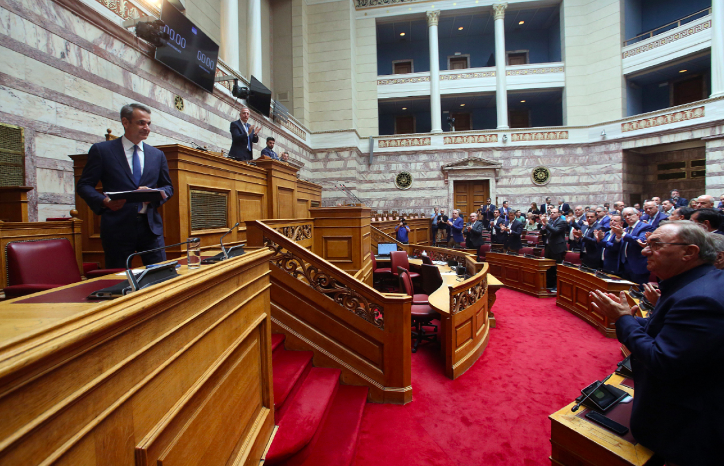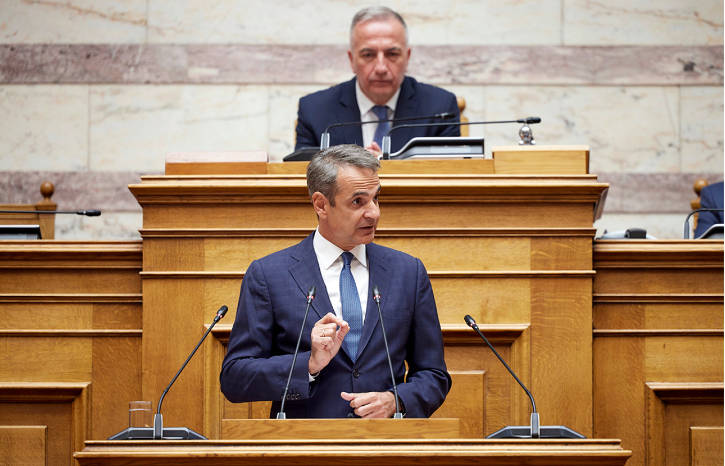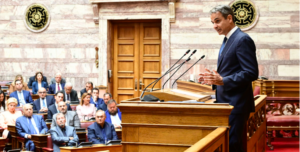The recent five-hour meeting of the ND Parliamentary Group was anything but easy for Prime Minister Mitsotakis, who faced a range of dissatisfactions. Topics such as same-sex marriage, the party’s centrist moves, the persistence in appointing non-parliamentary ministers, and the MPs’ lack of access to government officials were all raised. However, the criticisms were seen as both productive and constructive by many colleagues, serving as valuable feedback for the Prime Minister to understand the base’s sentiments.
During the meeting, Mitsotakis listened to the criticisms for four hours, following the statements of 37 MPs. He then announced new appointments with the party’s deputies, revisiting the “20s” model from his first term, where MPs would have open discussions with him at the Maximos Palace. The first of these appointments may occur before the summer holidays.
Government Interventions
In response to the criticism about government officials’ handling of MPs’ concerns, Mitsotakis announced changes to the general secretaries. In several ministries, some general secretaries were seen as unresponsive to MPs, acting as a barrier rather than facilitating communication. These changes aim to ensure that MPs’ messages reach the government staff effectively and that issues are resolved promptly to prevent dissatisfaction.

Criticism and Responses
Experienced party observers noted that the atmosphere in the “blue” Parliamentary Group was a test for the government staff. Resentments that had been building up for months were openly expressed. Many MPs criticized the party’s ideological stance and its disconnect from the base. These criticisms were spontaneous, reflecting widespread sentiments among MPs.

The main message from the MPs was that there is a gap between the government’s decisions and societal demands. Same-sex marriage was cited as the tipping point in a series of issues causing discontent. The debates on this topic, involving President Katerina Sakellaropoulou, Akis Skertsos, and Alexis Patelis, were particularly noted. Skertsos faced criticism from several MPs, although they refrained from naming him directly, possibly to avoid extending criticism to the Prime Minister.
Sakellaropoulou’s Reappointment Challenge
It also became clear that renewing President Sakellaropoulou’s term will be challenging. MPs Notis Mitarakis and Giorgos Vlachos openly stated they would not vote for her, with Thanos Plevris indicating the same. These three are just a few among many who tacitly oppose her reappointment, with Antonis Samaras and his supporters being notable examples. While the government remains viable due to constitutional revisions separating the Presidential election from parliamentary dissolution, a wave of discontent within the Parliamentary Group is something Maximos cannot ignore, despite official statements to the contrary.

Except for what comes next with Salmas
Moreover, Aetoloakarnania MP Marios Salmas, who went as far as questioning yesterday whether ND “stands with the many or the few,” particularly concerning interests tied to oil, should now be seen as an outsider. Mr. Mitsotakis swiftly responded in a stern manner, causing discomfort among MPs at Maximos Mansion. “All MPs were politically positioned; Salmas expressed his views with empathy,” commented another ND MP, linking the Aitoloakarnania politician’s remarks to his opposition, among other things, to the appointment of his longtime political rival Kostas Karagounis as Deputy Minister of Labour. Nevertheless, it’s evident that Mr. Salmas is contemplating an exit this autumn.
Reconvening as of Monday
The intra-party dynamics within ND did not conclude yesterday, as the anticipated joint appearance of former Prime Ministers Costas Karamanlis and Antonis Samaras at the presentation of journalist Manolis Kottakis’ book “The Secret Files of Karamanlis” next Monday at the War Museum is awaited with interest. According to protothema.gr, Mr. Mitsotakis will not be attending, while sharp positions from the “formers” are expected.
Ask me anything
Explore related questions





